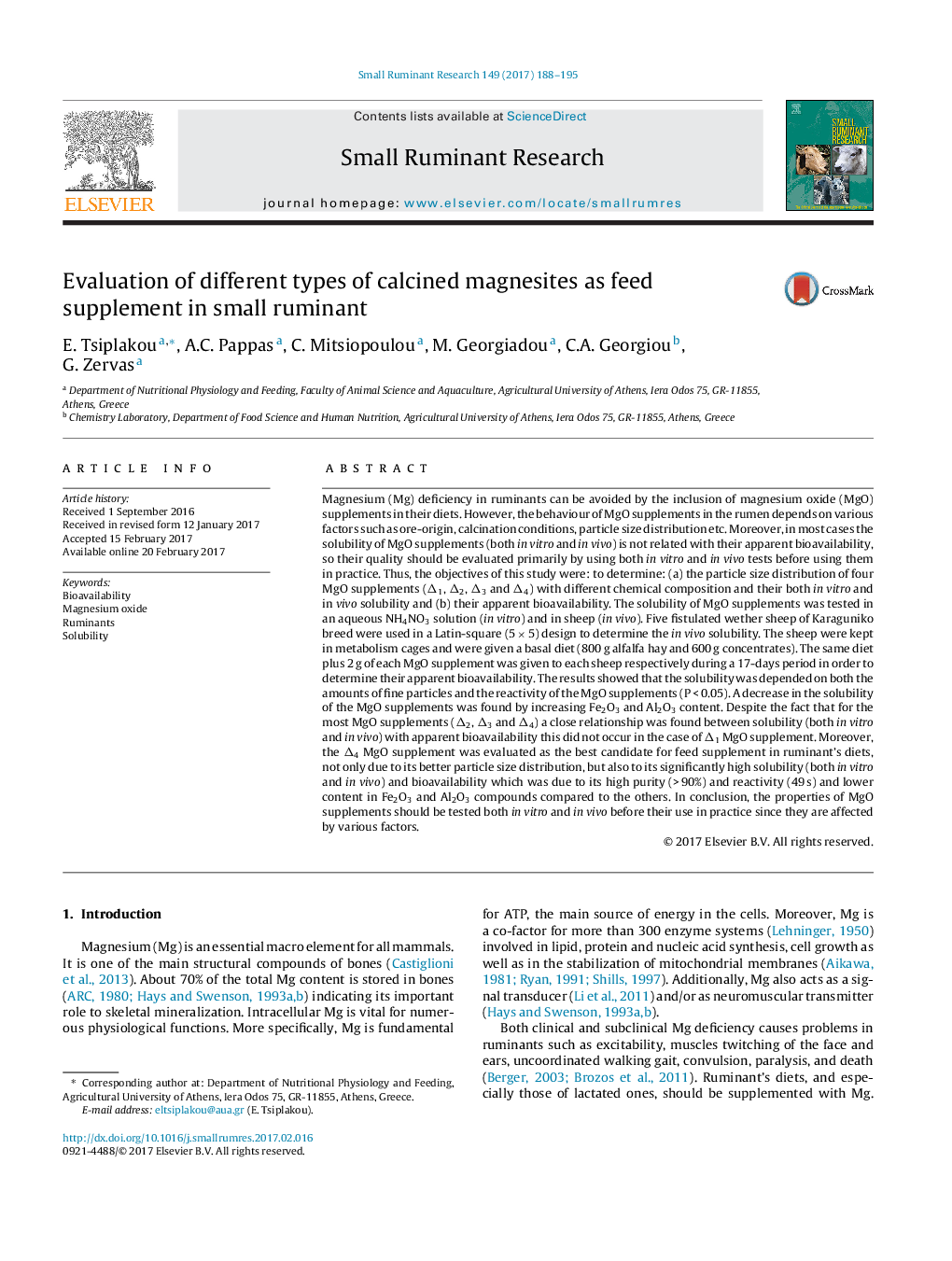| کد مقاله | کد نشریه | سال انتشار | مقاله انگلیسی | نسخه تمام متن |
|---|---|---|---|---|
| 5544259 | 1554343 | 2017 | 8 صفحه PDF | دانلود رایگان |
- MgO supplements with finer particles size have high solubility.
- The chemical composition of the MgO supplements affects its solubility.
- The bioavailability of some MgO supplements is not related with their solubility.
- MgO supplement with high purity and reactivity and low solids content is a good candidate for feed supplement in ruminants.
Magnesium (Mg) deficiency in ruminants can be avoided by the inclusion of magnesium oxide (MgO) supplements in their diets. However, the behaviour of MgO supplements in the rumen depends on various factors such as ore-origin, calcination conditions, particle size distribution etc. Moreover, in most cases the solubility of MgO supplements (both in vitro and in vivo) is not related with their apparent bioavailability, so their quality should be evaluated primarily by using both in vitro and in vivo tests before using them in practice. Thus, the objectives of this study were: to determine: (a) the particle size distribution of four MgO supplements (Î1, Î2, Î3 and Î4) with different chemical composition and their both in vitro and in vivo solubility and (b) their apparent bioavailability. The solubility of MgO supplements was tested in an aqueous NH4NO3 solution (in vitro) and in sheep (in vivo). Five fistulated wether sheep of Karaguniko breed were used in a Latin-square (5Â ÃÂ 5) design to determine the in vivo solubility. The sheep were kept in metabolism cages and were given a basal diet (800Â g alfalfa hay and 600Â g concentrates). The same diet plus 2Â g of each MgO supplement was given to each sheep respectively during a 17-days period in order to determine their apparent bioavailability. The results showed that the solubility was depended on both the amounts of fine particles and the reactivity of the MgO supplements (PÂ <Â 0.05). A decrease in the solubility of the MgO supplements was found by increasing Fe2O3 and Al2O3 content. Despite the fact that for the most MgO supplements (Î2, Î3 and Î4) a close relationship was found between solubility (both in vitro and in vivo) with apparent bioavailability this did not occur in the case of Î1 MgO supplement. Moreover, the Î4 MgO supplement was evaluated as the best candidate for feed supplement in ruminant's diets, not only due to its better particle size distribution, but also to its significantly high solubility (both in vitro and in vivo) and bioavailability which was due to its high purity (>Â 90%) and reactivity (49Â s) and lower content in Fe2O3 and Al2O3 compounds compared to the others. In conclusion, the properties of MgO supplements should be tested both in vitro and in vivo before their use in practice since they are affected by various factors.
Journal: Small Ruminant Research - Volume 149, April 2017, Pages 188-195
